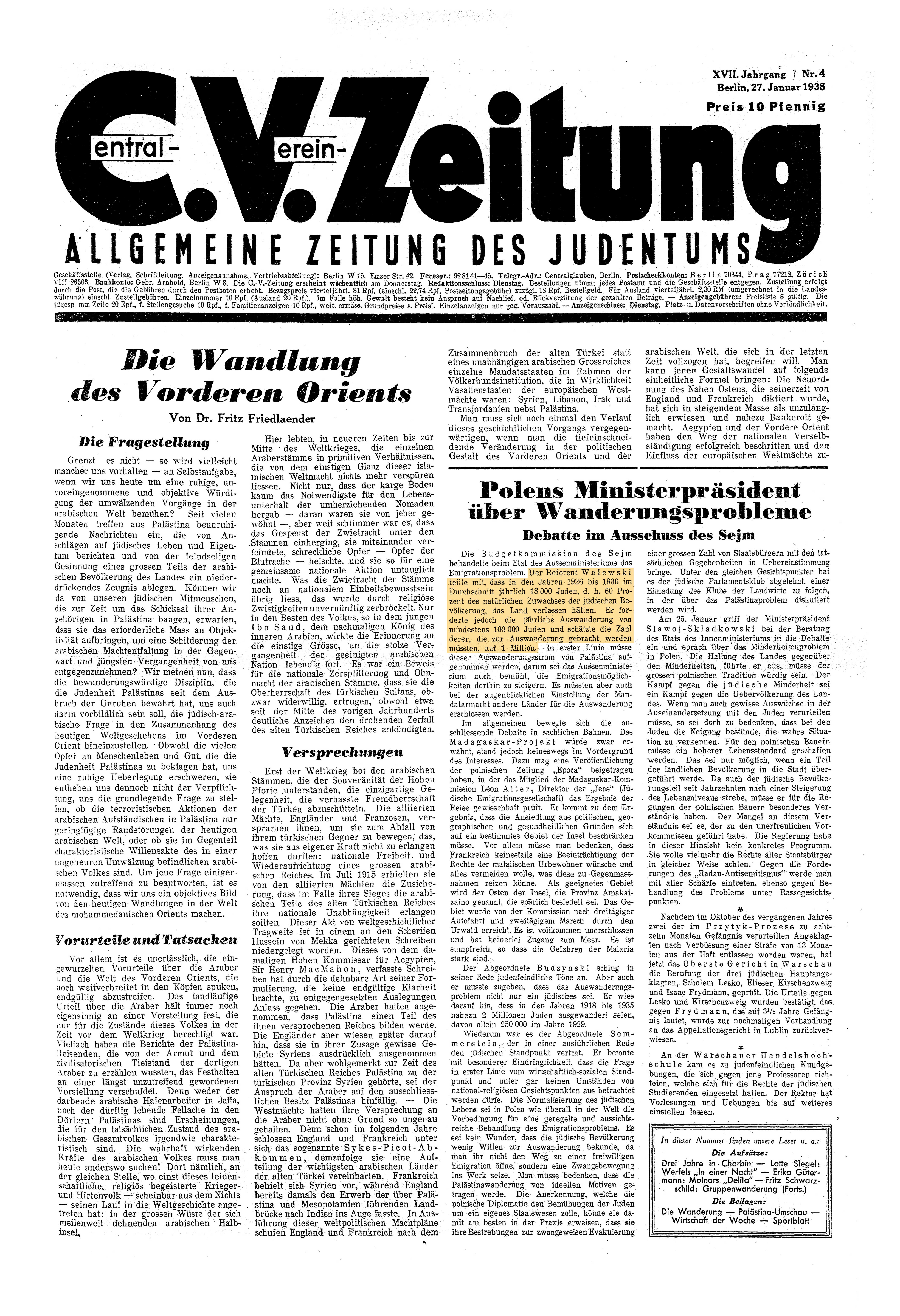No hope in the East
The Polish Parliament discusses the removal of Jews

-

Speaker Walewski reported that in the years 1926 to 1936 an average of 18,000 Jews annually, i.e. 60% of the natural increase of the Jewish population, had left the country. However, he demanded the emigration of at least 100.000 Jews annually and estimated that at least 1 million annually needed to be coaxed to emigrate.
Warsaw
As the situation of Jews in Nazi Germany deteriorated from day to day, the anti-Semitic atmosphere in other countries became increasingly tense. In neighboring Poland, anti-Semitic voices became louder and louder. As the C.V.-Zeitung, the organ of the Central Association of German Citizens of Jewish Faith, reported, the Lower House of the Polish Parliament expressed its anti-Jewish sentiments in the form of a plan to remove Jews from the country: it called for the emigration of at least 100,000 Jews annually. Besides Palestine, Madagascar was discussed as a possible destination. The case of Polish Prime Minister Sławoj Składkowski shows how widely antisemitism was accepted: commenting on the “unpleasant events” (presumably, the numerous cases of physical violence against Jews), he claimed that Jews themselves were to blame, due to their lack of understanding of Polish peasantry, which, just as the Jews themselves, was striving for a higher standard of living.
SOURCE
Institution:
Compact Memory, Universitätsbibliothek Frankfurt am Main

Collection:
"Polens Ministerpräsident über Wanderungsprobleme." C.V. Zeitung (Allgemeine) (Berlin)

Original:
Vol. 17, no. 4, January 27, 1938: 1












































